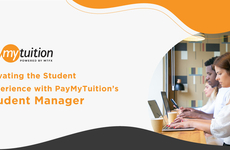
QPay Understands How Students Shop and Spend
Justin Lam — September 12, 2018 — Tech
References: getqpay & businessinsider.au
Focusing primarily on students, QPay is a new payment platform that aims to be a genuine challenger bank for the Millennial market. Formed in 2015 by former Australian National University students Andrew Clapham and Zakaria Bouguettaya, QPay first started as a payment app for university students that helped them buy event tickets, textbooks, merchandise, and even club memberships.
Since its beginnings, QPay has gone on to be used by 40% of ANU's student population and has enabled more than $11 million in transactions. QPay even has its own MasterCard and has begun to expand into the US and UK at the University of Oxford and Cambridge. This success is due to QPay's understanding of student spending behavior and its aim to provide "the best deal for the least amount of effort."
Since its beginnings, QPay has gone on to be used by 40% of ANU's student population and has enabled more than $11 million in transactions. QPay even has its own MasterCard and has begun to expand into the US and UK at the University of Oxford and Cambridge. This success is due to QPay's understanding of student spending behavior and its aim to provide "the best deal for the least amount of effort."
Trend Themes
1. Tailored Payment Platforms - Disruptive innovation opportunity: Develop payment platforms that cater specifically to the needs and behaviors of different consumer segments.
2. Challenger Banks - Disruptive innovation opportunity: Create digital banks that offer better services and user experiences to compete with traditional banks.
3. Campus Commerce - Disruptive innovation opportunity: Build platforms or apps that streamline and enhance the purchasing experience for students on university campuses.
Industry Implications
1. Fintech - Disruptive innovation opportunity: Integrate technology and finance to create innovative solutions for the financial industry.
2. Higher Education - Disruptive innovation opportunity: Develop technology-driven solutions to improve the student experience and make education more accessible.
3. Retail - Disruptive innovation opportunity: Leverage technology to transform the retail industry and provide personalized, convenient shopping experiences.
0.8
Score
Popularity
Activity
Freshness























